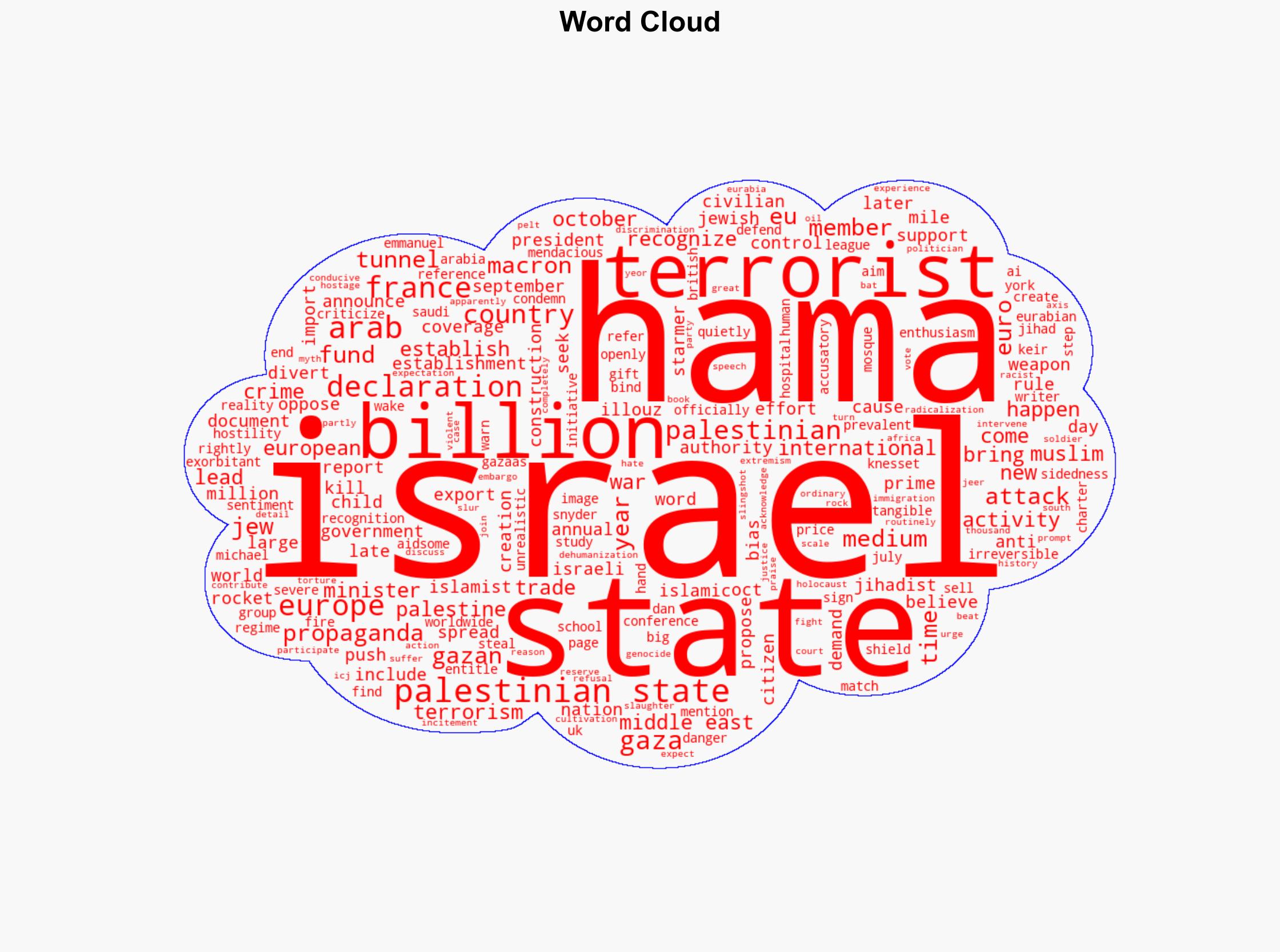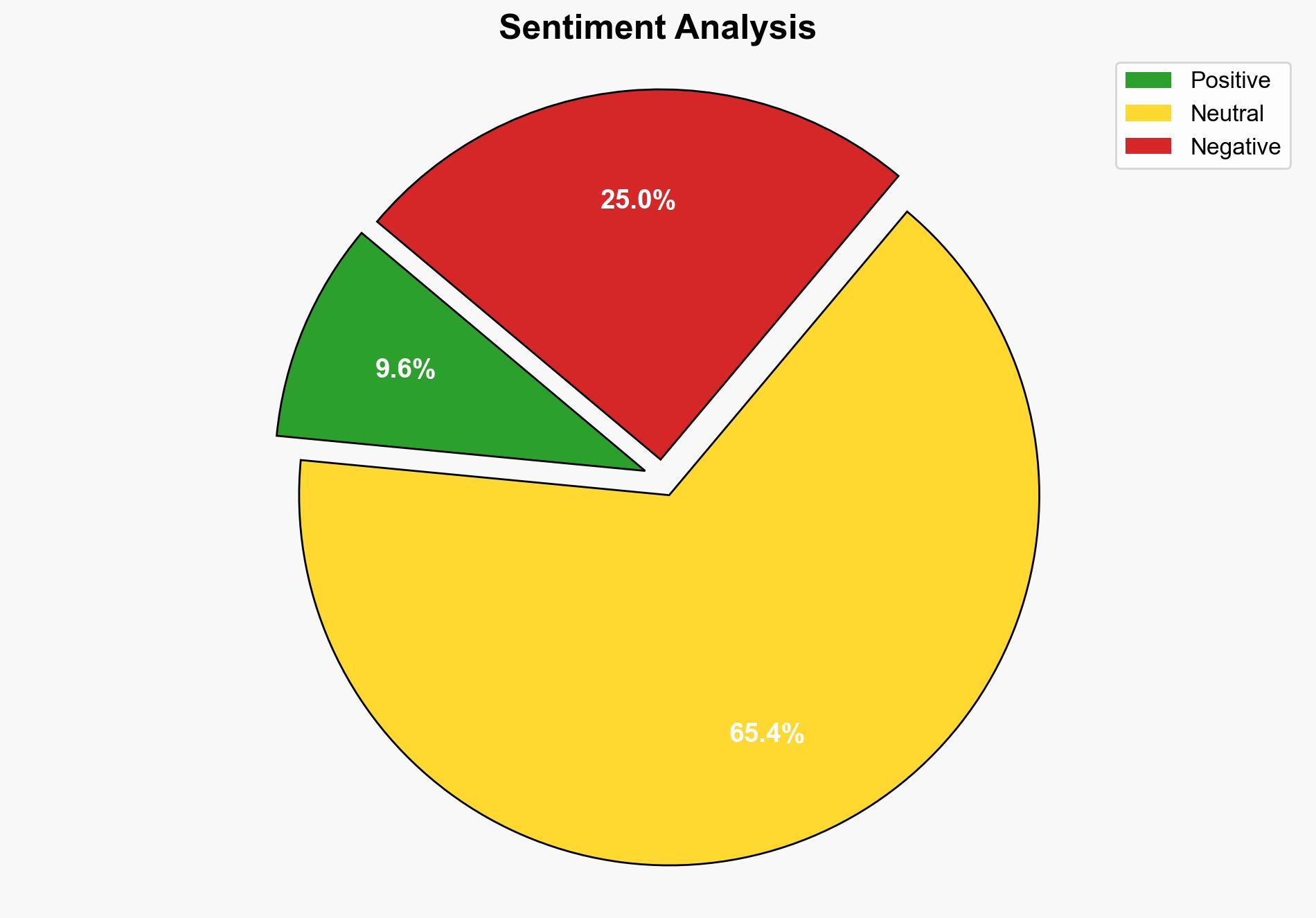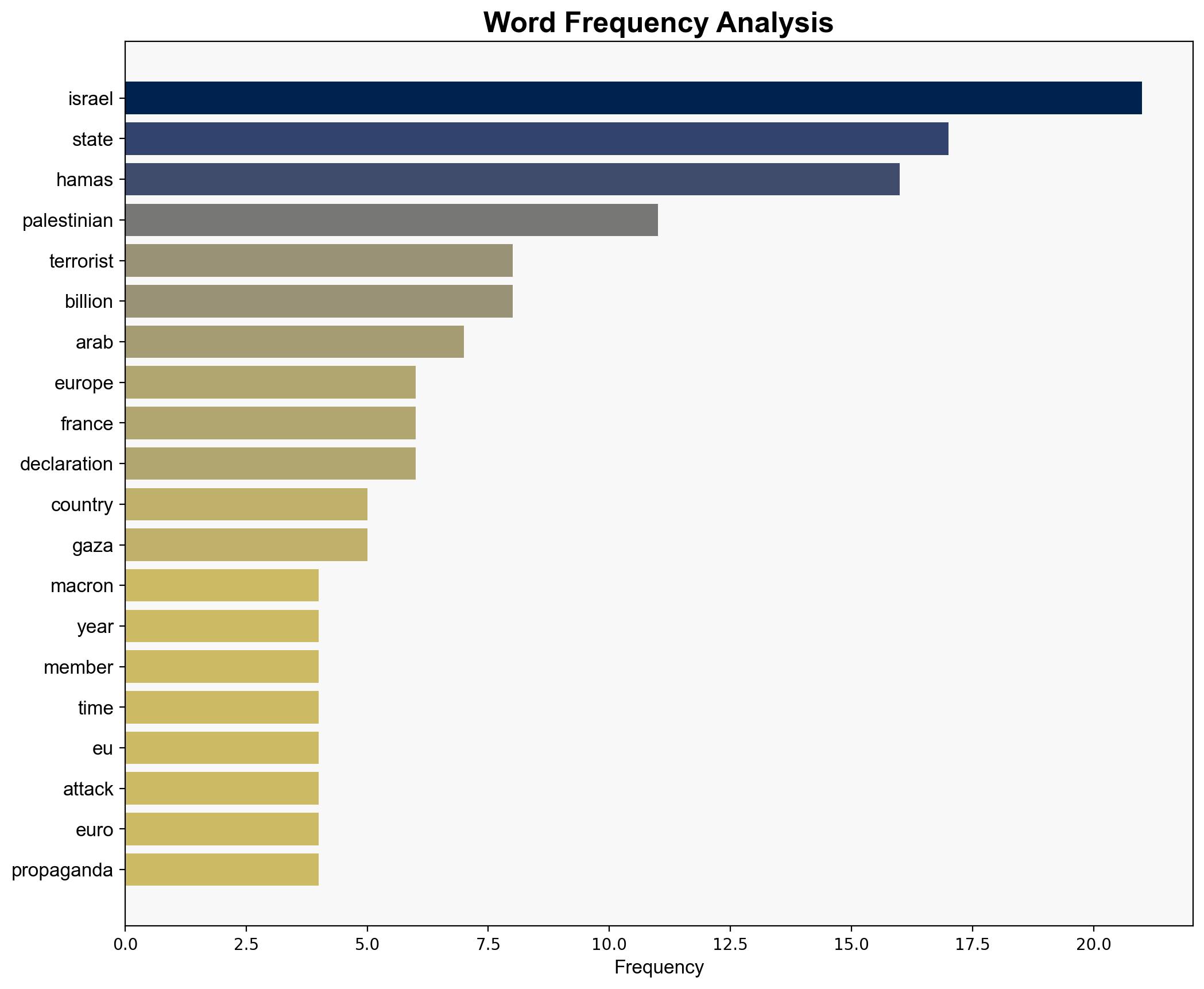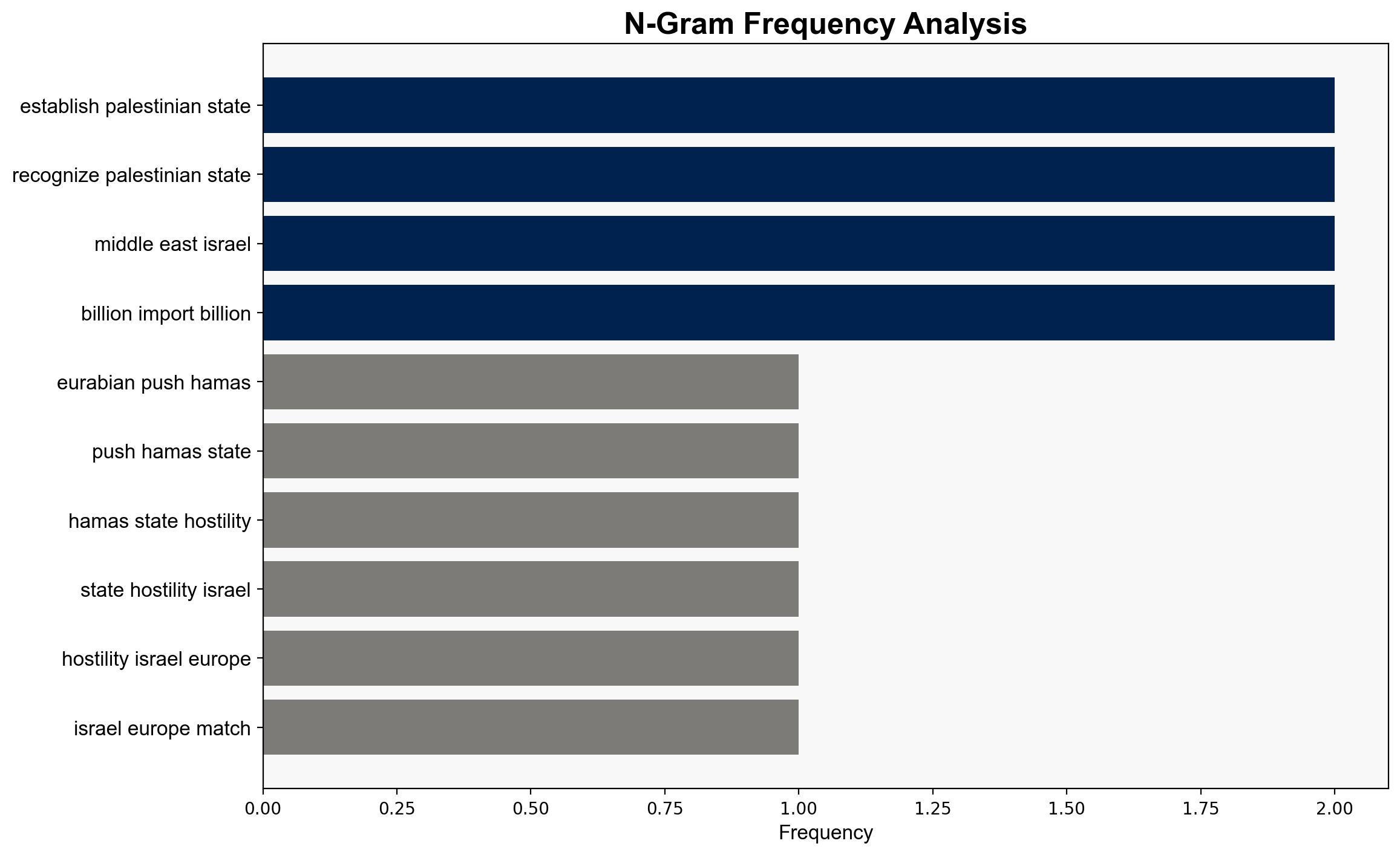The Eurabian Push for a Hamas State – Americanthinker.com
Published on: 2025-08-12
Intelligence Report: The Eurabian Push for a Hamas State – Americanthinker.com
1. BLUF (Bottom Line Up Front)
The article suggests a coordinated international effort, led by European and Arab states, to establish a Palestinian state under Hamas control. The most supported hypothesis is that geopolitical interests and domestic political considerations drive this initiative, rather than a unified ideological stance against Israel. Confidence Level: Moderate. Recommended action: Engage in diplomatic efforts to clarify the intentions of involved states and address potential security concerns.
2. Competing Hypotheses
1. **Hypothesis 1**: European and Arab states are pushing for a Palestinian state under Hamas control primarily due to geopolitical interests, including energy security and regional influence.
– **Supporting Evidence**: Historical context of European-Arab relations, oil embargoes, and political alliances.
– **Contradictory Evidence**: Lack of unified European stance; internal EU divisions on Middle East policy.
2. **Hypothesis 2**: The push for a Hamas-led Palestinian state is driven by ideological alignment and a shared anti-Israel sentiment.
– **Supporting Evidence**: Documented anti-Israel sentiment in European media and political rhetoric.
– **Contradictory Evidence**: Practical considerations, such as economic ties with Israel, may outweigh ideological motivations.
3. Key Assumptions and Red Flags
– **Assumptions**: The assumption that all European states uniformly support Hamas is flawed. There is also an assumption that domestic political gains outweigh international diplomatic repercussions.
– **Red Flags**: The article’s tone suggests potential bias, possibly overstating the unity and intent of European and Arab states. The lack of direct quotes or official statements from involved governments raises questions about the reliability of the claims.
4. Implications and Strategic Risks
– **Geopolitical Risks**: A Hamas-led state could destabilize the region, affecting global energy markets and increasing security tensions.
– **Economic Risks**: Potential sanctions or trade disruptions involving Israel and its allies.
– **Psychological Risks**: Increased radicalization and anti-Semitic sentiment in Europe, potentially leading to domestic unrest.
5. Recommendations and Outlook
- Engage in diplomatic dialogues with European and Arab states to clarify their positions and intentions.
- Enhance intelligence gathering on the political dynamics within the EU and Arab League regarding Middle East policy.
- Scenario Projections:
- **Best Case**: Diplomatic efforts lead to a balanced approach that addresses both Israeli and Palestinian concerns.
- **Worst Case**: Escalation of regional conflict, leading to broader international involvement and economic disruptions.
- **Most Likely**: Continued diplomatic tension with sporadic escalations, but no major shifts in policy or alliances.
6. Key Individuals and Entities
– Emmanuel Macron
– Keir Starmer
– Michael Snyder
7. Thematic Tags
national security threats, geopolitical strategy, Middle East policy, international relations




